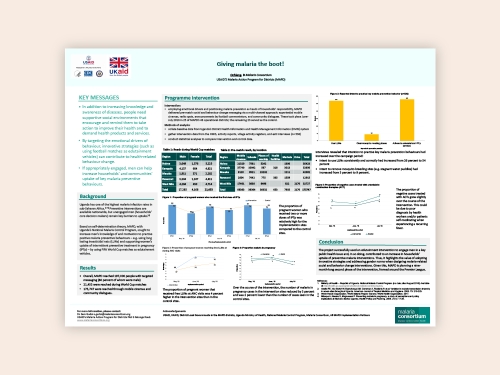
Publication Date:
25/09/2018
Author:
Daudi Ochieng
Type:
Poster

Giving malaria the boot
Publication Date:25/09/2018
Author:
Daudi Ochieng
Type:
Poster
Uganda has one of the highest malaria infection rates in sub-Saharan Africa. Preventive interventions are available nationwide, but unengaged men (households’ core decision makers) remain key barriers to uptake. Based on self-determination theory, USAID's Malaria Action Program for Districts and Uganda’s National Malaria Control Program used FIFA World Cup matches as edutainment vehicles to increase men’s knowledge of and motivation to practise positive malaria preventive behaviours, such as using long lasting insecticidal nets and supporting women’s uptake of intermittent preventive treatment in pregnancy.
This presentation was given at the annual meeting of the RBM Social and Behaviour Change Communications working group in Lusaka, Zambia in September 2018.
Country: Uganda
Keywords: Community delivery | SBC | Child and maternal health | Malaria | Malaria in pregnancy | Chemoprevention | Vector control | SDGs
« Back to Publications